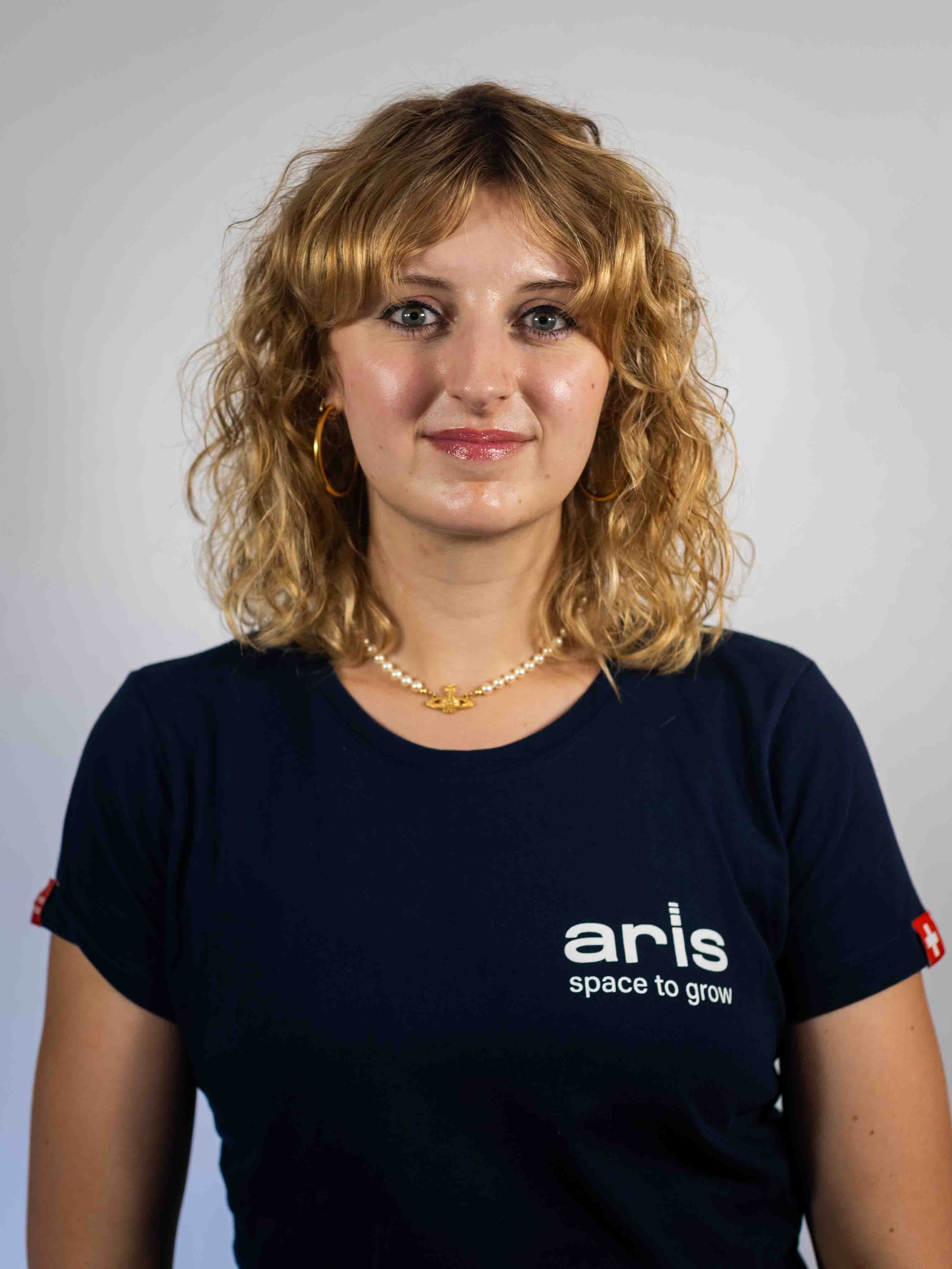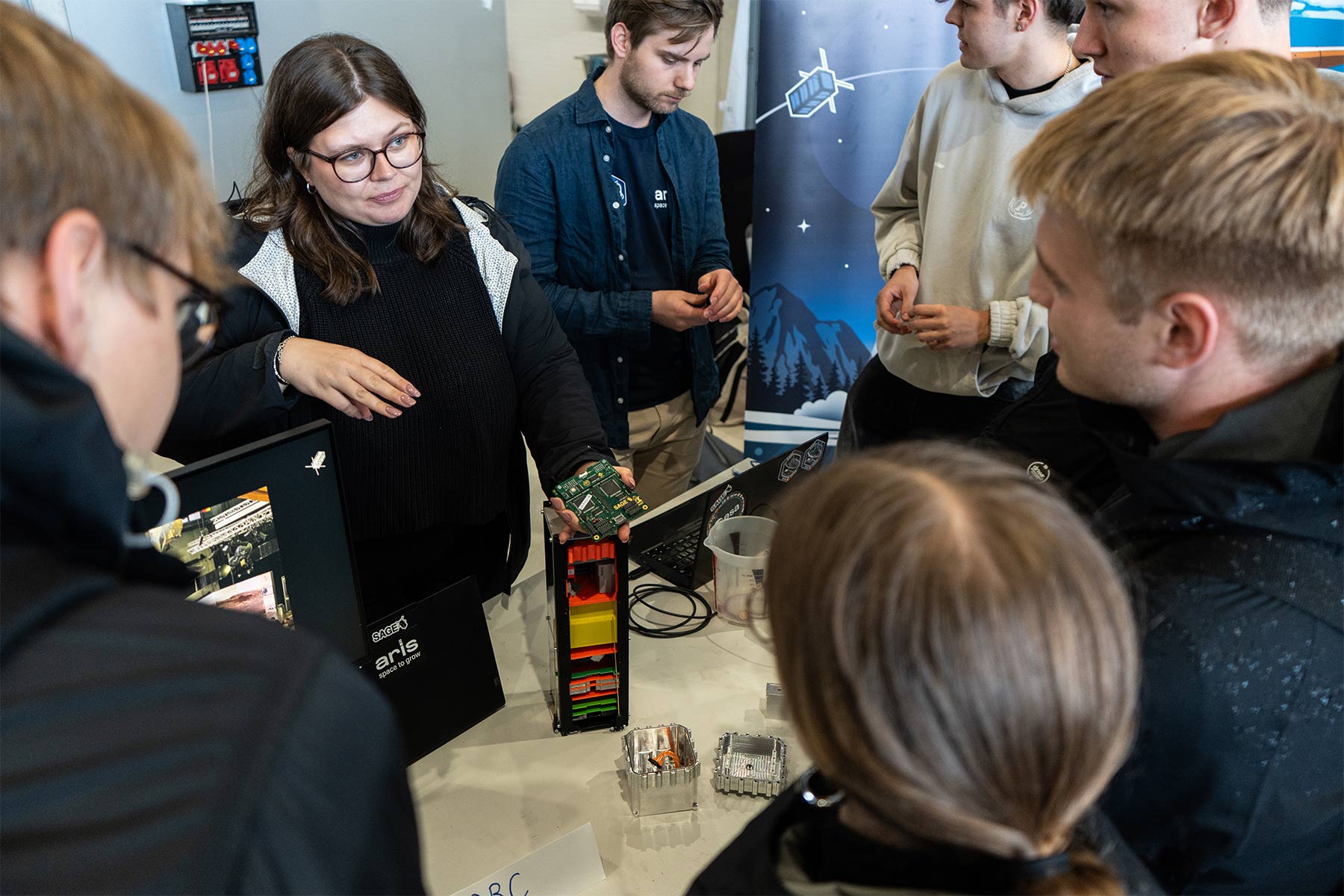Learn from Chloé about ARIS, the Academic Space Initiative Switzerland, which is a student-led organization that has existed since 2017.
Chloé, who are you and what exactly is ARIS?
I am the president of ARIS, the Academic Space Initiative Switzerland, which is a student-led organization that has existed since 2017. Our goal is to develop real, hands-on space projects – from rockets to satellites and autonomous robotic systems. Today, we are one of the largest and most active student engineering initiatives in Switzerland and Europe.
Why was ARIS founded?
Space exploration fascinates many students, but during their studies, it often remains theoretical. That’s why we founded ARIS – as a platform where students can turn their own ideas into real projects. Unlike traditional internships, our members work on complex systems from start to finish. Our motto “Space to grow” says it all: we create space for personal, professional, and entrepreneurial growth.
We want to make aerospace tangible by growing with real projects
What motivates the students at ARIS?
Definitely the passion for space and technology – but also the desire to make a real impact. It’s not just about enthusiasm; it’s about concrete implementation. We design, build, test – and sometimes we fail. Taking responsibility for a real-world project is incredibly motivating. Many team members voluntarily invest 25 hours per week or more – alongside their studies. Things get especially intense before a rocket launch.
How big is ARIS now?
We’ve grown significantly since our founding. Today, we have over 800 registered members, with around 250 actively working on our projects. Our teams are interdisciplinary – covering propulsion, electronics, software, business development, and public relations.
Who are your partners?
Our members come from five partner universities: ETH Zurich, ZHAW, OST, HSLU, and UZH. About 80% of our active members study at ETH, but we’re seeing increasing interest from other disciplines – especially in business and entrepreneurship. Space is increasingly seen as a driver of innovation – something we notice through the growing diversity of our teams. In addition to universities, we collaborate with a wide range of industry partners. They not only provide generous sponsorships but also valuable expertise and technological support. We’re extremely grateful for this. These partnerships allow us to implement projects at a professional level and bridge the gap between academia and industry.
What impact does ARIS have beyond its projects?
Many of our former members now work in the space industry – at NASA, JPL, SpaceX, Rocket Lab, Isar Aerospace, or Beyond Gravity, for example. Some have even founded their own startups, often directly from ARIS projects. We’re especially proud of Rabea Rogge – she was part of ARIS and became the first “ARIStronaut” to fly into space in 2026. That powerfully demonstrates how far student engagement can go.
What are your hopes for closer collaboration with ZHAW?
ZHAW is a very practice-oriented university with committed students who are a perfect fit for our approach. I see a lot of potential in closer cooperation – through joint projects, workshops, or exchange between student associations. A stronger presence of ARIS at other locations, such as Winterthur or Zurich, would also be a great benefit. It would allow us to reach even more students, form interdisciplinary teams, and further strengthen ARIS’s network throughout Switzerland. Space exploration thrives on collaboration – and that’s exactly what we want to promote here as well.
Very interesting - thank you for the insights, Chloé!

If you want to know more about ARIS and/or want to engage, check out their website.




